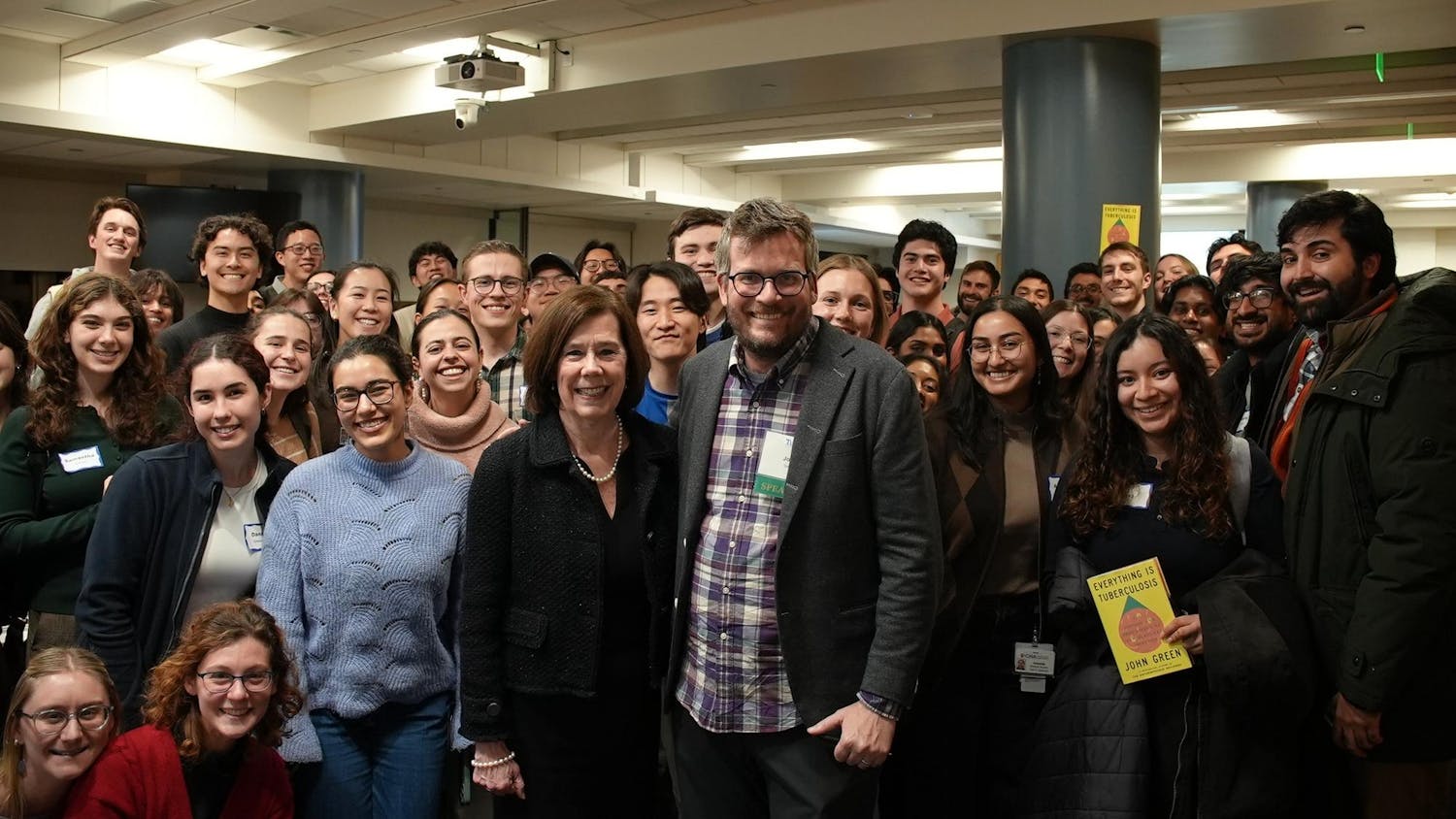A contentious presidential election. A pandemic. Financial instability. Virtual classes. College students have faced significant obstacles over the past eight months, raising stress and anxiety for many. Luckily for Tufts students, many people and organizations have stepped up to help students learn to deal with increased stress.
Tufts’ Counseling and Mental Health Services (CMHS) moved to virtual-only services in the spring after campus shut down, and services will continue to be offered only in virtual formats through at least spring semester. However, they have maintained prior counseling offerings and expanded services this semester.
For many years, CMHS has offered free groups and workshops open to all students. This semester, CMHS has modified these groups to better reflect the times and increased their offerings. Some of the groups currently offered include “Survive and Thrive —Tools for Uncertain Times” and “Coping with Loss in a Remote World.”
In addition to these groups, CMHS started a new service called Ask a Counselor. Through the service, students can sign up for a short, 15-minute phone consultation with a counselor.
“They’re designed for someone who is feeling like a brief conversation is going to be what they need,” Staff Psychologist and Director of Training Julie Jampel said.
“[The consultations] wouldn't be for somebody who's in crisis, or someone who is looking for a therapist over time,” Jampel said. “It could be a good way to sort out a problem with the roommate, or think about something that feels addressable in a consultation for 15 minutes.”
The Ask a Counselor service has been fairly successful this semester, and CMHS is currently discussing whether or not to continue the service after the pandemic.
“We’re leaning towards keeping it because it seems like it really has a place among what we offer. If students continue to use it and get use out of it, then we’ll continue to offer it,” Jampel said.
CMHS isn’t the only organization on campus that’s assisting students in coping with stress. Tufts Burlesque Troupe is hosting frequent workshops open to all Tufts students. Zoe McKeown, a third-year Tufts-SMFA combined-degree student and Burlesque member, hosted an October workshop called DIVINE: FREE FEMININITY.
McKeown’s workshop combined dance with activating energy storage.
“It’s also all about being comfortable and worshipping your own body and celebrating the softness and fluidity,” McKeown said. “I think everyone just deserves to feel like a sexy sensual goddess every now and then.”
In addition to dance and confidence, McKeown’s practices also focus on activating Svadhisthana, also known as the sacral chakra, and energy storage in the base of the spine.
“I think it's grounding is very important, as well. You ground in your body so you can ascend in your mind, which is what I try to do during the workshop,” McKeown said.
The workshop stemmed from Burlesque experimenting with new virtual-only formats, for which McKeown was grateful.
“[Burlesque] is such a wonderful outlet, and I know that a lot of other queer people and femmes can attest to the fact that it feels like a true safe space on campus,” McKeown said.
McKeown felt that her workshop was a success.
“Everyone who showed up was very engaged, even though some of them felt kind of silly. But everyone totally leaned into it, I was very grateful for that,“ McKeown said.
Though she has no immediate plans to host another workshop, McKeown is still looking into the future possibilities.
“I would love to do more dance with people, more freeform kind of therapeutic dance, one that takes care of the physical body as well as the emotional body,” McKeown said.
DIVINE: FREE FEMININITY was one of many virtual workshops held this semester to help students feel more grounded. Recent graduate Abigail Alpern Fisch (LA ’20) has been leading Koru Mindfulness workshops.
According to Fisch, Koru Mindfulness is an evidence-based mindfulness meditation program and curriculum from Duke University. The curriculum she teaches is a four-week introductory mindfulness meditation course for people at any level of mindfulness. The program specifically targets “emerging adults,” young adults aged 18–29 who are undergoing many transitions in their lives such as college and entering the workforce.
Fisch first learned about Koru Mindfulness when she enrolled in a workshop during her first year at Tufts. For Fisch, the program was a place where people from many different parts of campus could come together in a safe, supportive space every week.
“Sometimes people at Tufts might feel hesitant to get involved with things on their own and I think [Koru Mindfulness] should not be one of those things,” Fisch said. “If you can't find a friend to go to Mindfulness with you, you should still do it because it's for you, and then once you have a positive experience, you can share that with [your friends] and get them involved.”
After completing a training for Koru Mindfulness this past summer, Fisch became a certified teacher. This semester she has co-taught the workshops, and has enjoyed the process of learning and improving as a teacher.
Even if students are unable to enroll in a Koru Mindfulness workshop, Fisch urges everyone to practice mindfulness.
“I always encourage people to download Headspace or listen to podcasts because it can make you happier and the opportunities to learn more about mindfulness,” Fisch said.
However, Fisch hopes people get the chance to experience and benefit from Koru Mindfulness as she has. She doesn’t think that getting into mindfulness should be something intimidating.
“No one is the expert on mindfulness,” Fisch said. “It requires constant exercising of that mindfulness muscle. You're never going to be an expert at it.”
Fisch and McKeown both consistently practice what they teach others. Even at CMHS, the counselors find it important to look after themselves, as well as students.
“We're trying to practice what we preach,” Jampel said. “We're also trying to make sure we're getting up and taking walks, you know, we're not working after hours or before hours. Trying to make sure that we eat well, get enough sleep.”
The key to all of these new offerings, from professional counselors to students and graduates, is adapting to new times.
“We're trying to approach this flexibly and be able to provide what's needed for students and among the staff too,” Jampel said.





